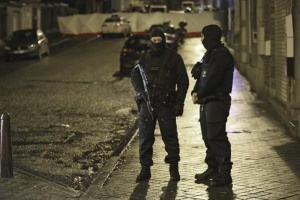Can Terrorists Detonate a Dirty Bomb?

By Debbie Gregory.
Radioisotopes are capable of causing radiation poisoning and sickness, making them a potential tool for terrorists seeking to build a “dirty” bomb that could cause widespread contamination.
Belgian authorities believe that a group of Islamic terrorists were trying to figure out a way to collect such materials to build a bomb. They have suspicions that a plot to kidnap an employee of the Belgian Nuclear Research Centre might have been in the works in order to secure the materials needed.
Didier Vanderhasselt, a spokesman for the Belgian Foreign Ministry, said that the security of their nuclear sites is of the highest concern, and that the country’s counterterrorism experts were “constantly monitoring the situation of all sensitive potential targets, including nuclear sites.”
Vanderhasselt added that “as far as we know we have been implementing the same measures as the French did the last few years,” and that Belgian security precautions meet the International Atomic Energy Agency’s standards.
So just how worried should we be?
The real threat from dirty bombs lies in their psychological and economic effects, a fact that often sees these devices described as weapons of mass disruption rather than weapons of mass destruction.
A dirty bomb detonated in a major urban center would be sure to cause widespread fear and panic. Additionally, the economic costs associated with a dirty bomb would be considerable. The clean-up after such an attack could figure in the billions of dollars, if detonated in a high-value area such as city center or port.
So while the thought of ISIS using dirty bombs to further its terrorist agenda is unsettling, the threat should not be exaggerated, particularly when it comes to its impact on public health.
Military Connection salutes and proudly serves veterans and service members in the Army, Navy, Air Force, Marines, Coast Guard, Guard and Reserve, and their families.

















